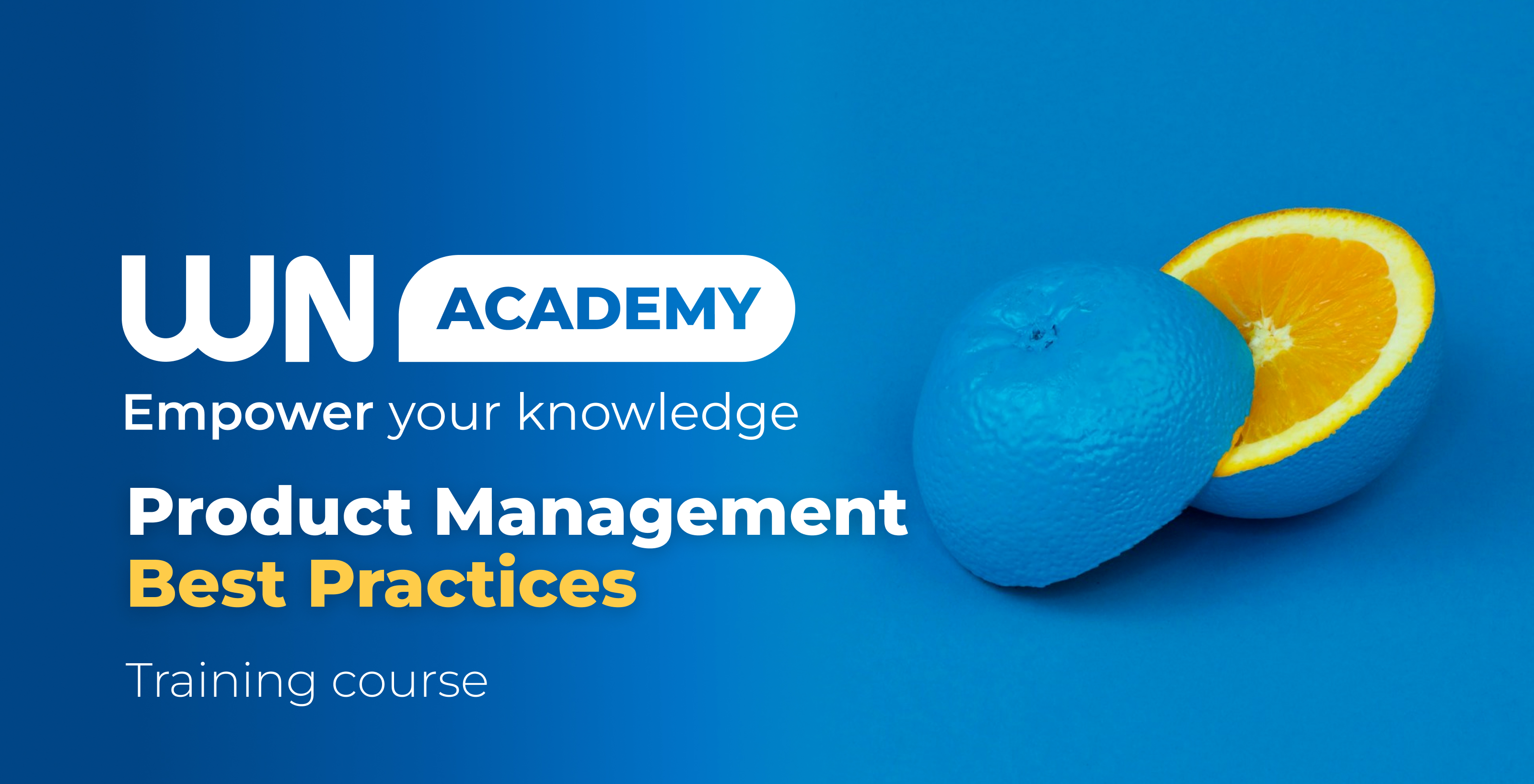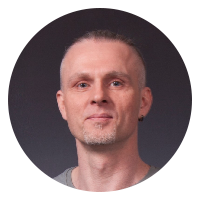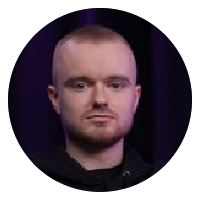As part of the launch of the Product Management Best Practices course on the WN Academy platform, we talked about the position of a product manager with its authors Denis Pozdnyakov and Nikita Veselko.
A little remark before the interview: On February 29, a free webinar on "Effective product management through Feature Ownership" will be held on the WN Academy platform. Pozdnyakov and Veselko will just hold it.
A little bit about the speakers.
Denis Pozdnyakov
Denis has been in the industry for more than 15 years. He started as a narrative designer at the Nival Network. He also worked in studios luden.io , Enplex Games and others. He has worked on products such as Prime World, VRobot, Population Zero, Breathedge: Cosmic Cluck. Founder and product director of the Vintorog and Contrast Games game studios.
Nikita Veselko
Nikita has been in the industry for seven years. Specializes in working with Unreal Engine and VR. He was engaged in such VR products as CreamSodaClub and Breathedge: Cosmic Cluck. He currently holds the position of CEO at Vintorog and Lead Product Owner at Contrast Games.
Alexander Semenov, App2Top: Hi! Let's start with the key question: Who is the product manager?
Denis Pozdnyakov, Contrast Games: To put it quite simply, this is an extreme one. A product is a role that assumes responsibility for a product.
It's very common. Let's try to be specific. What is he responsible for on the project, what is his pool of responsibilities?
Denis: Unfortunately, it is impossible to outline it succinctly and quickly. This is a very big topic.
Nikita Veselko, Contrast Games: As a rule, the product is responsible for big pictures, business metrics, UX and the introduction of features.
Okay, then let's try to go from the opposite in the definition. Previously, product managers (Product Manager) and project managers (Project Manager) were often confused. How do these positions differ?
Denis: A lot depends on the company here. In some companies, they are no different.
Nikita: To be boring, there is no such common concept as Project Manager in Western structures at all, where its "Russian functionality" is performed by Producer.
If you don't get boring, then the product is responsible for the product, i.e. for the result, and the project is responsible for the project, i.e. for the process of creating the product.
While we are still discussing the terms, I want to talk more about the topic of the project owners (Product Owner). I have come across the opinion that in terms of functionality, this position is not much different from the role of a product manager. Is there really any difference between them and, if so, what is it?
Denis: The concept of Product Owner came from the Agile methodology, so, again, in some companies, Product Manager means the same thing as in others — Product Owner.
Nikita: In an ideal world, a Product Owner is the one who forms vision and goals, product requirements, and a Product Manager is the one who follows these requirements.
When we talk about a programmer, an artist, or a marketer, we always very clearly understand his need for a project. But is everything so clear when it comes to a product manager? That is, can we say that he is fundamentally important as a specialist for any type of games?
Denis: The Product Manager is the leader of the team, and the team will never jump above its leader. You may have a strong programmer and an artist, but if you have a weak product, the quality of the product will be strong only by chance.
Nikita: If there is no dedicated product in the team, then sooner or later someone else will take over this role, for example, the same strong programmer. The only question is, are you ready to receive a product that the programmer was responsible for maintaining?
What is the key skill or skill for a product manager? Roughly speaking, what is it better not to go into this profession without, no matter how interesting it may seem from the outside?
Denis: It depends on the product, on the team, on the market, there are always specifics.
We have products with completely different hard skills. Based on their skills, we decide who will lead which product.
Nikita: For example, if a product has strong community management skills, then it can be put on a product with an operation, since it will be able to work well with the audience.
How important is communication, and in general a set of soft skills, in the work of a product manager? It is clear that with their high level, it is always better for everyone to work, but in the context of our topic, how much is this a key story, or perhaps just here you can do without them?
Denis: If you are your own team, and users are faceless IDs, then, of course, you can do without soft skills. But the bigger your team and the higher you climb the career ladder, the more often you will have to communicate and make purely human decisions.
Nikita: It will be very difficult for a product without soft skills.
On the one hand, when talking about product management, we keep in mind that it's about management, it's about working with data. On the other hand, working in this path involves coming up with features, forming a product vision. Hence the question: how creative is the product's position? How much creativity is there in it?
Denis: Creativity is also a technology, no matter what anyone says. The creator must not only come up with solutions that give unique experiences, he must also be able to bring them to life. And everyone is looking for a balance between the amazing and the expected. Of course, some products tend more towards non-standard solutions — for example, computer games, but billing, a system for collecting metrics, and their analysis itself…
Creativity is good, but should a product manager be able to personally perform technical tasks?
Nikita: It's always better when the product can assemble the dashboard in the analytics system itself, write a query to the BD in MySQL or sketch a UI mockup.
And what is included in the product manager's tool pool? Which of them are the main ones?
Denis: Again, it depends on the specifics of the product. From the general, for which we put a plus sign in karma at interviews:
- knows how to work with some kind of analytics system;
- have basic Git skills;
- understands task trackers.
But sometimes the product must also own a specific LMS, and in other cases, "Google Tables" or neurons.
I came across in my resume that people with technical education are expected to take such positions. How justified is this?
Nikita: I have a degree in software engineering and I started my career as a developer. I must say that it helped me quickly move from programmers to products. You can quickly assess the complexity of the feature even at the moment of its concept, you speak the same language with the developers.
One of the problems with product managers is that, as far as I understand, apart from courses, there is no education in this discipline as such. Hence the question: where do product managers come from? Who usually becomes them?
Denis: The problem with a product manager is that he has to know and be able to do a lot.
As a rule, a product manager is a combination of knowledge/skills/predisposition to manage people/organizations with knowledge/skills/predisposition in an applied field, for example, in design, programming, promotion, etc.
So we study all our lives, get several educations, read textbooks, gain experience.
The success of the game is the work of many specialists, but how do you understand that it was the product manager who performed well (or, on the contrary, poorly)? You can even change the question: who is a good product and who is a bad one?
Denis: If the game is successful, it is the merit of the team. If the game fails, the product is to blame. Such things.
The final question is about books. What would you recommend to read, perhaps even carefully study from the available literature for a specialist who wants to develop as a product manager?
- Sabirov's "The Numbers Game" is a must—read for all products. We have read it several times and, once every couple of months, we can run through it briefly.
- INSPIRED. How to Create Tech Products Customers Love Martin Kagan. It may seem tedious and too basic, but you can still find useful basic information about the basic things that a product needs to understand.
- "Game as a business" by Savchenko. It is rather important for business owners, but it will allow novice products to look at game development exactly as a business process.
- "Ask your mom: How can I communicate with clients and confirm the correctness of my business idea if everyone is lying?" Rob Fitzpatrick. The book is about how to conduct interviews and confirm your ideas correctly.
- "Write, shorten." It is also desirable to read, as it will help to prepare understandable texts, documentation, presentations and, in general, how best to communicate.
- PMBOK (A body of knowledge on project Management). Yes, those who understand what we are talking about will say that this is too big and complicated a book (I would say that this is an encyclopedia textbook). But if you want to understand the processes of project management, then get ready to treat this book like the Bible.
- "Game development without pain and crunches" by Richard Lemarchand. Of course, this does not happen in real life, but the book will help you get through them normally.



